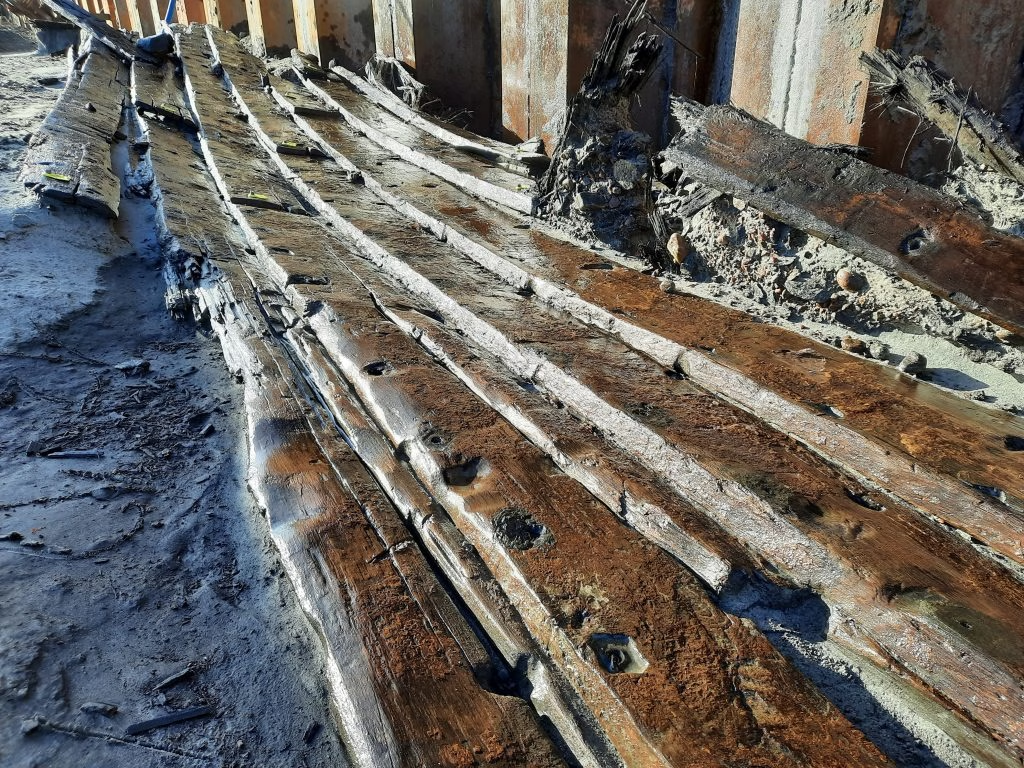A new archaeological report reveals details of three historic shipwrecks discovered during infrastructure work in Varberg, Sweden. Dating from the late medieval period and the 1600s, the remains offer rare insight into shipbuilding traditions and port life along Sweden’s west coast.
Tunnel Excavations Unveil Maritime History
As part of the Varberg Tunnel project launched in 2019, excavations in the city center have exposed long-lost shoreline and harbor structures. Among the most significant finds are the remains of six vessels, three of which—Varberg Wrecks 2, 5, and 6—are now detailed in a newly released report.
Conducted in collaboration with Bohusläns Museum, Visuell Arkeologi, and Kulturmiljö Halland, the research brought together both marine and terrestrial archaeologists.

Well-Preserved Medieval Ship: Varberg Wreck 2
The best-preserved of the three, Wreck 2, was a 16th-century oak sailing vessel built using the clinker method. Notably, a preserved berghult (rub rail), which protected the ship’s hull during docking, was found with traces of fire damage—an intriguing detail that raises further historical questions.
Craftsmanship Revealed: Clinker vs. Carvel
Wrecks 2 and 5 were clinker-built, a traditional Nordic technique where hull planks overlap. Wreck 6, however, was a carvel-built ship with a preserved keel and signs of Dutch influence in its construction—though dendrochronological tests could not determine the exact origin or felling date of the timber.

1300s Cog Ships Await Study
Next in line are two 14th-century cogs—large, flat-bottomed cargo ships used in the Hanseatic League. “We’re preparing the final analysis for Wrecks 3 and 4,” says project lead Elisabet Schager. “There’s a lot more to uncover, and we expect exciting stories to emerge.”
Cover Image Credit: Here archaeologists are excavating the Varberg wreck 5. Photo: Archaeologerna CC BY





